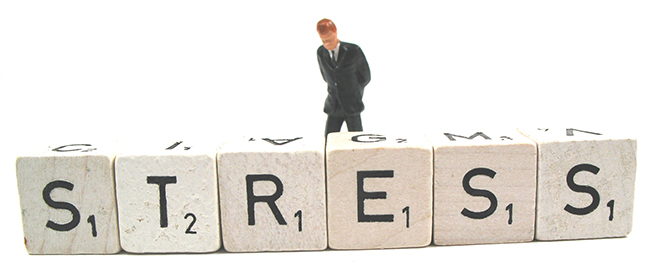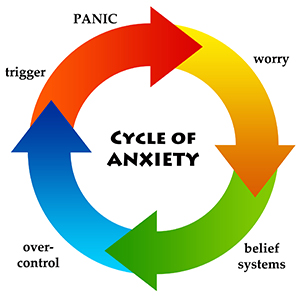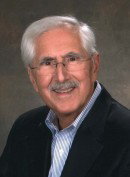THE EPIDEMIC OF OUR TIMES

By Dr. Peter Kalellis
How often have you heard, “I’m stressed, I can’t take it anymore?” I was surprised to hear the word “stress” from my cousin Dimitri who lives in Athens, Greece. “I have a lot of stress,” he said with a deep sigh. Obviously, Americans have no monopoly on the stress epidemic. It exists in other parts of the world.
But what does “stress” really mean? Does it mean to be overwhelmed for a day or two by too much to do in too little time? Does it mean that the person is in panic mode while facing a pressing deadline? According to Merriam-Webster’s Dictionary stress is defined as “a physical, chemical, or emotional factor that causes bodily or mental tension and may be a factor in disease causation.”
STRESS FOR ALL AGES
For most people, daily pressure hassles are the most damaging to the body. Internalizing stress creates something of a steady drip, drip, drip of stress hormones into a person’s tissues, including the brain. The little stressors add up over time and can do far more damage than an occasional negative event that might produce a more massive stress reaction.
One does not have to be a physician or psychologist to realize that everyone regardless of age has some experience of stress. Thousands of people suffer from some kind of stress. The question that always surfaces in our minds: Why has stress, which is almost as common as an average cold, become a major problem in our daily lives?
In our times of rapid changes and insecurity about life’s events, individuals and families are undergoing significant stress. Changes in lifestyles, passionate self-scrutiny, and turbulent family interaction, conflicts in values, competitive feelings, and undefined and unrealistic expectations frustrate any attempt to create a meaningful way of life. We may have attained intellectual feats, and technology is daily reaching unimaginable progress; yet most of us experience a feeling of emptiness, an emotional deprivation, and seem to need more. Often, the more we learn about ourselves, the less we think of ourselves. The more we observe life, the less we participate in joyful living.
YOUR VITAL ENERGIES

Many aspects of life cause stress upon the mind, body, and soul. Our busy schedules seem to fill every waking hour with important appointments and tasks. Dealing with a major personal conflict or sudden illness or the painful loss of a loved one makes life stressful. Stress is stealing the vital energies we need to be reasonably content, inwardly whole human beings. The chance of escaping stressful times is slim. But the objective of this article and the future articles is to help the reader face reality and learn to live reasonably happily with less anxiety.
Living as God meant us to live requires that we understand and appreciate what is ours every day—our humanity, our health, our homes, our life and someone who cares and loves us. We develop our bodies and find them strong, beautiful, and useful. We cultivate our minds and realize that they are God’s greatest gifts to humans as we use them wisely and creatively. We can be truthful and honest with ourselves and to others. We are willing to take risks, to change when the situation calls for it, to hold back if what is ahead seems risky or dangerous. We adjust to what is new and different, keeping what seems to be useful and discarding what is not. Doing these things makes us healthy, alert, sensitive, playful, loving, and productive human beings.
Most of us have been told one time or another what we ought to do to build up and maintain physical health. Eat the right food. Don’t overeat, drink alcohol in moderation, and don’t smoke. Take a multiple vitamin every day, plus vitamins B-12, B-6, and C. Exercise regularly, at least thirty minutes each day. Watch your weight. Learn to relax. Get a good night’s sleep. Have a complete physical checkup at least once a year. Your medical doctor has probably told you to make sure your systolic blood pressure is under 140 and your diastolic not above 70. Beyond any doubt, good physical health is important and needs to be maintained. The question we are left with is: Does it eliminate anxiety? Many healthy, good-natured, and strong people are still subjects to some stress. And since some stress is unavoidable, how can we live with less stress?
I hope and believe that the articles about stress during the following months will help the reader live a life with less stress.

Dr. Peter M. Kalellis is a psychotherapist, marriage and family therapist, lecturer, and writer. He has a doctorate in clinical psychology and is the author of many books. He maintains his practice in Westfield, New Jersey.



